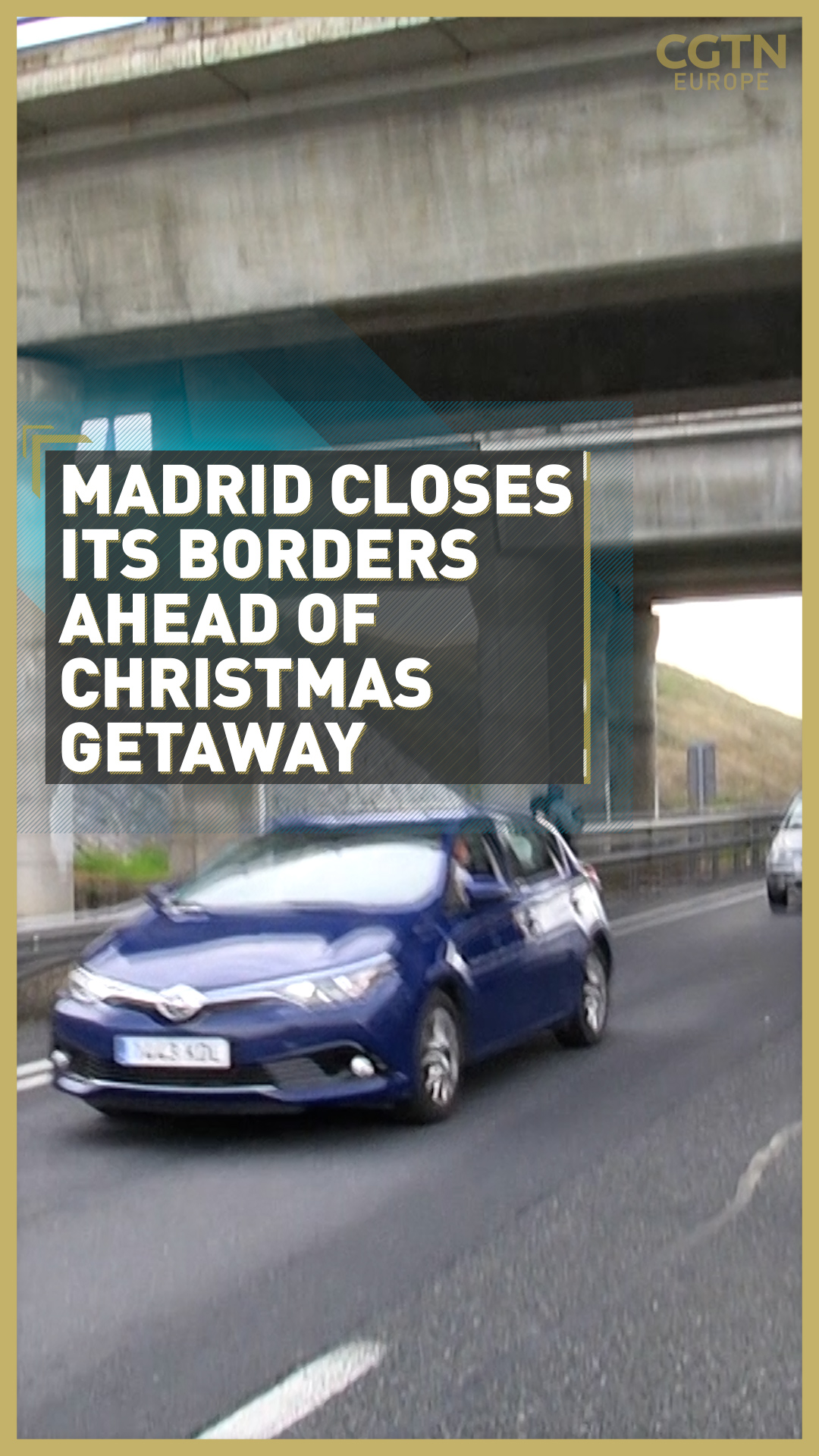02:27

Spain's capital Madrid has closed its borders till December 14 in an effort to stop the spread of the coronavirus during the festive period.
Normally this time of year would see thousands of people coming in and out of Madrid either to go Christmas shopping in the capital or to head out for a short getaway – but not this year.
CGTN Europe accompanied the local police to one of their checkpoints on the A42 motorway about 40 minutes outside of Madrid. The police then proceeded to check all traffic going in and out of the capital, stopping anyone whose trip wasn't deemed absolutely essential.
As well as closing the borders, the authorities here have also warned people in Madrid to follow social distancing rules during what is traditionally one of the busiest shopping weekends of the year.

In his daily briefing, Spain's COVID-19 task force chief Fernando Simon said Spain was still in an extremely precarious position when it came to coronavirus.
"Practically all of Spain continues to be at a degree of risk," he said. "The data that we are observing, if the evolution is true, does not indicate that we are in a situation where we can relax the measures that we are implementing."

Fernando Simon, Covid-19 task force chief.
Fernando Simon, Covid-19 task force chief.
CGTN Europe spoke to shoppers in Madrid, and there were mixed views as to whether the restrictions were necessary.
"I think they should put in place harder measures because Christmas celebrations are upon us," said one woman, "and people start moving around to get together with the family. If they don't put in enough restrictions now, we might see a rise in infections shortly."

Spain has recorded 1.6 million cases of COVID-19 and more than 45,000 deaths. /CGTN
Spain has recorded 1.6 million cases of COVID-19 and more than 45,000 deaths. /CGTN
Others believed people would try their best to follow social distancing rules during the busy shopping period.
"It will be a bit crowded anyway, but not the same as last year," said one man. "I'm a resident of this neighborhood and in past years it was incredible – you could barely move in the streets around here, it was so packed.
"I don't think we'll see that happening this year – first of all because there will be way less people and secondly because I think people will be responsible, for their own safety and others."
With Madrid and Spain just getting over the effects of the second wave of COVID-19, the authorities will be hoping the busier streets during the Christmas period don't prove to be the catalyst for a third surge of the pandemic.

